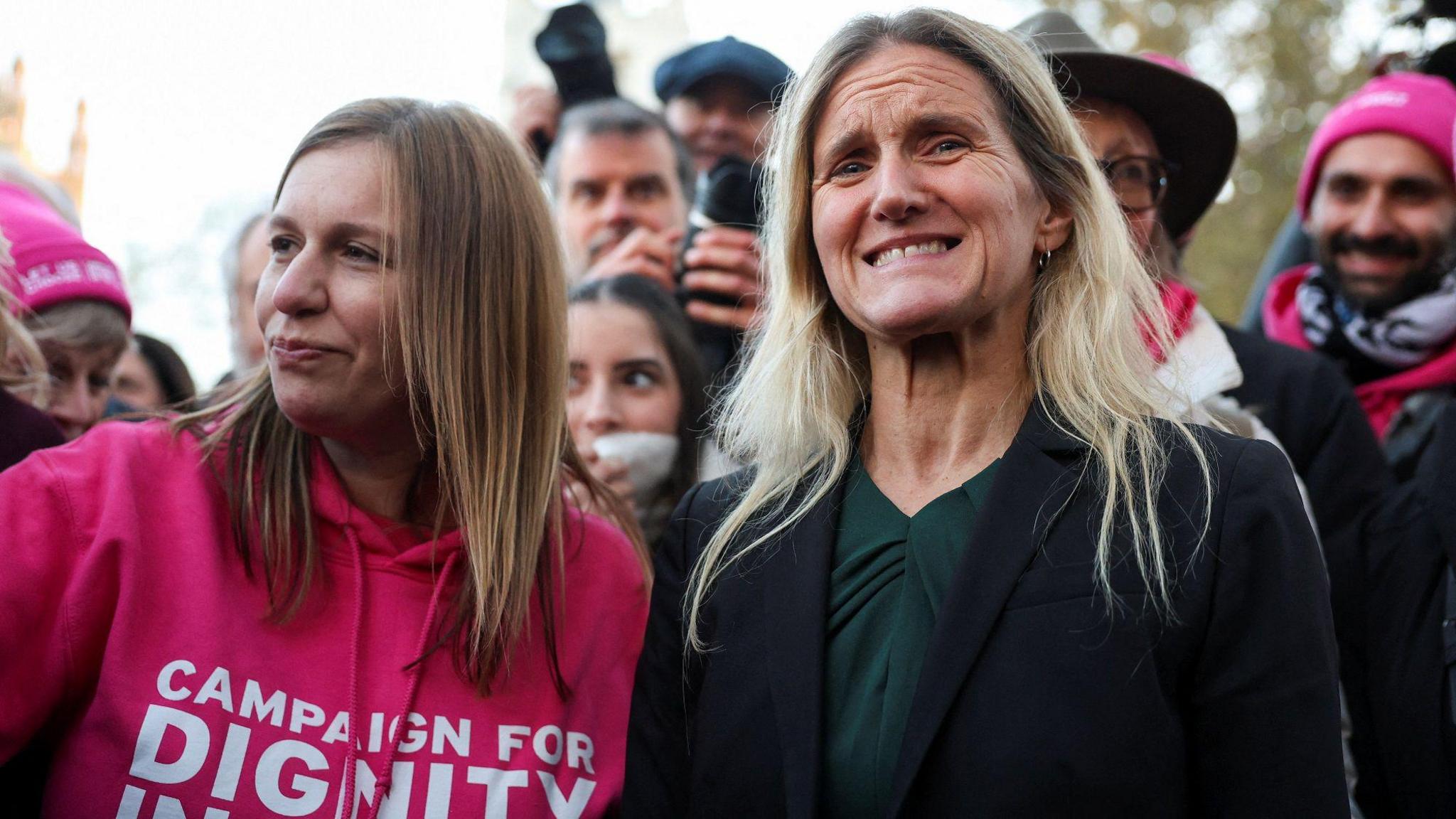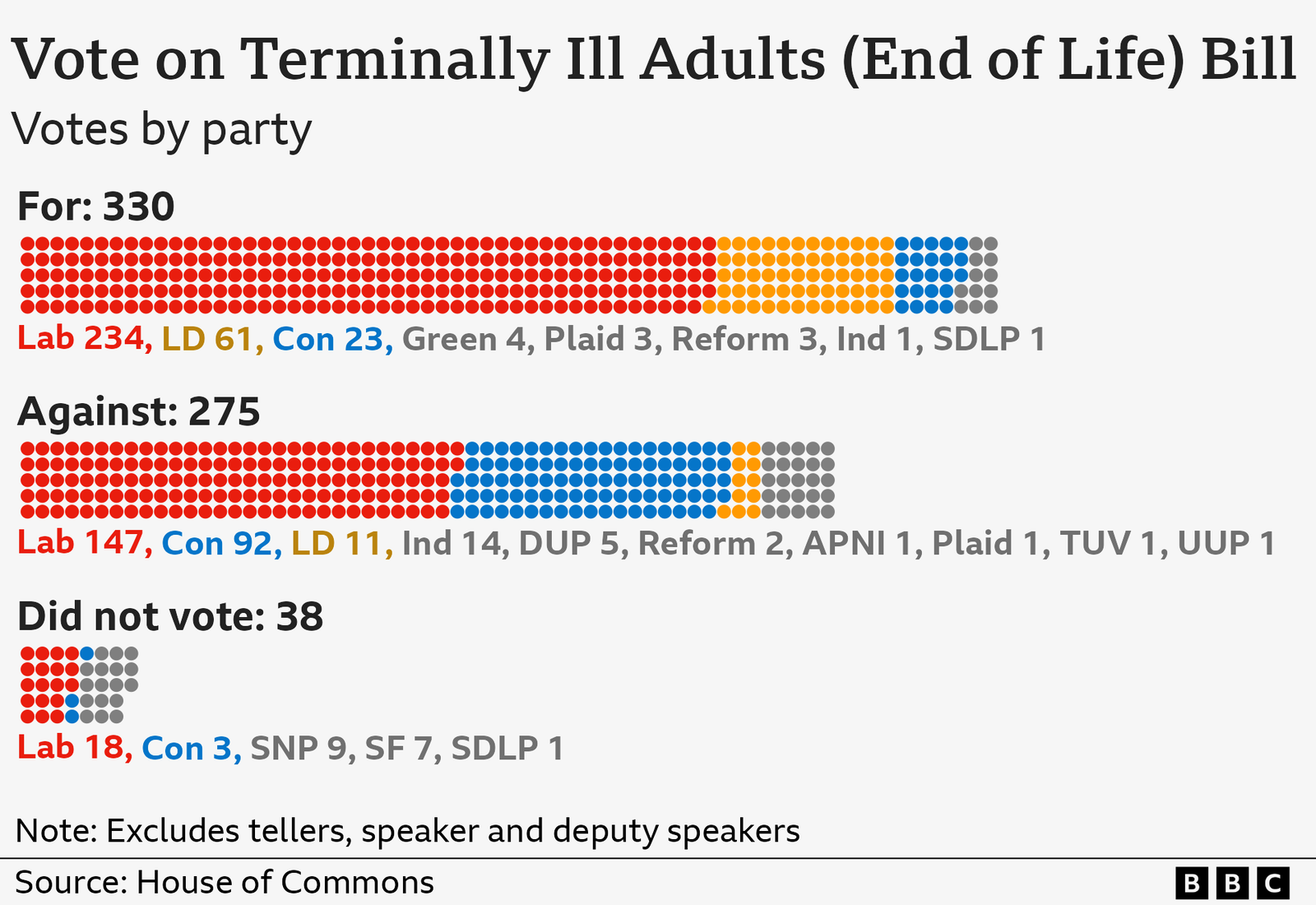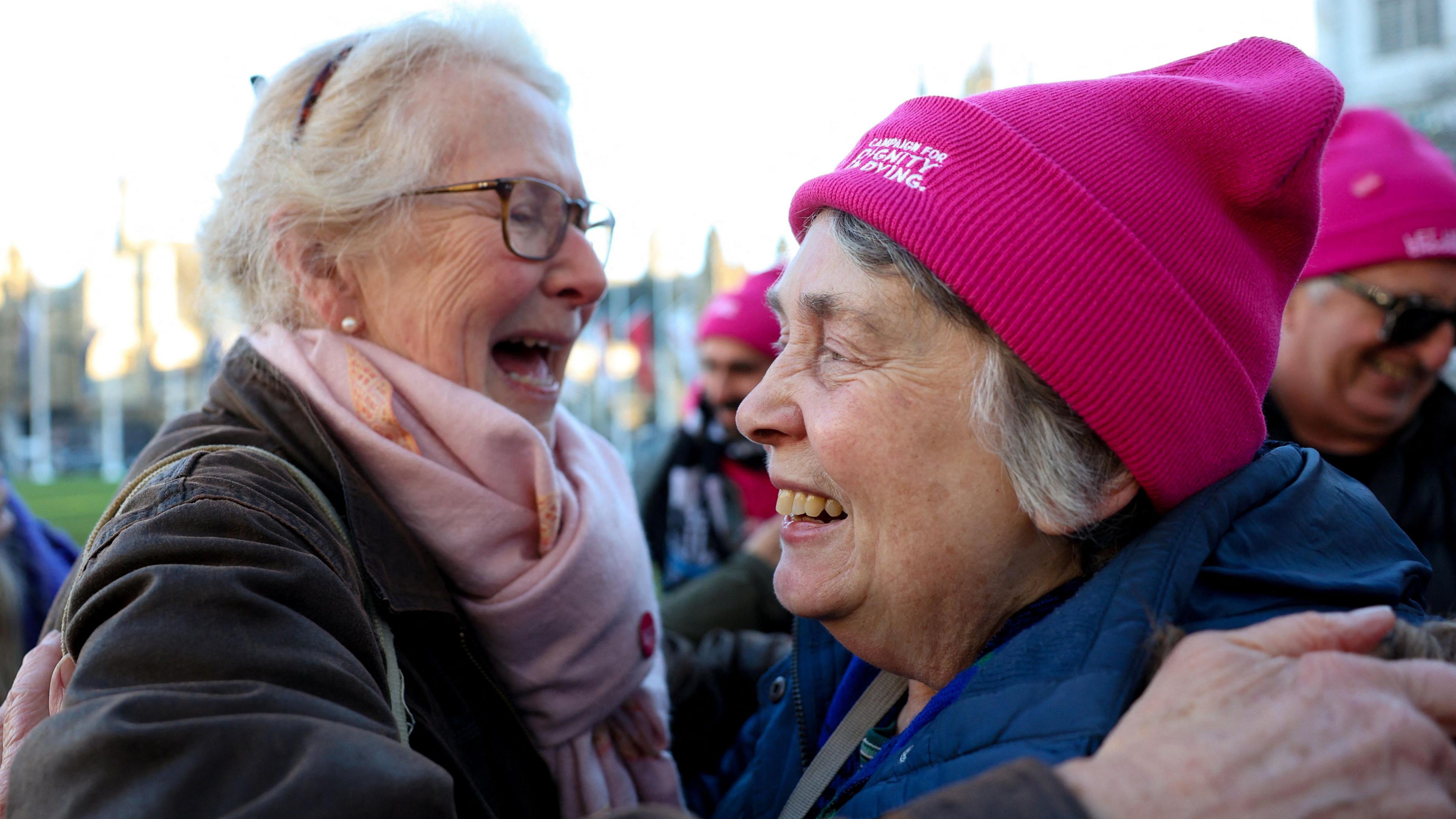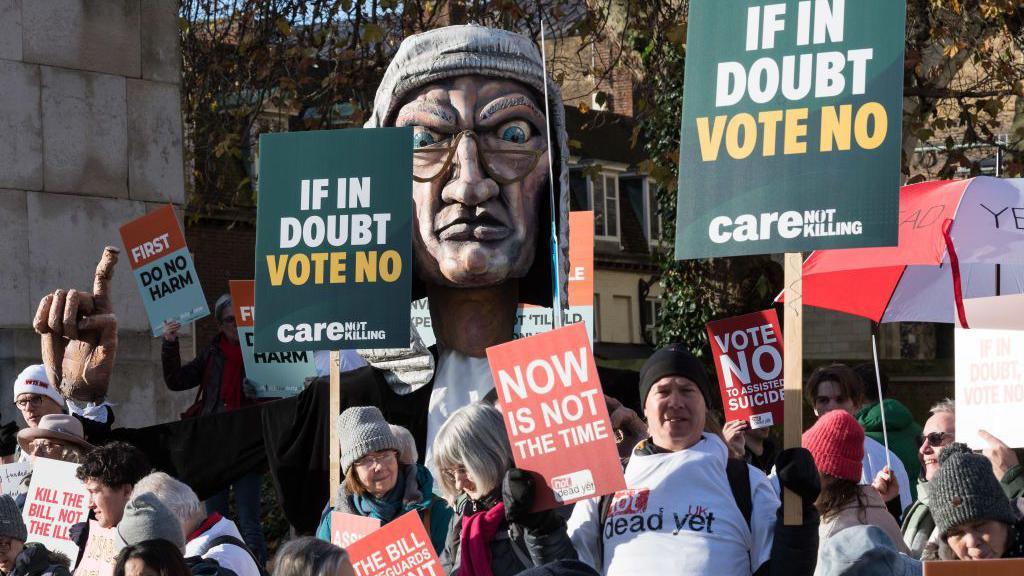MPs back proposals to legalise assisted dying

Labour MP Kim Leadbeater, who put forward the bill, joined supporters outside Parliament after the vote
- Published
MPs have backed proposals to legalise assisted dying in England and Wales in a historic vote which paves the way for a change in the law.
In the first Commons vote on the issue in nearly a decade, MPs supported a bill which would allow terminally ill adults expected to die within six months to seek help to end their own life by 330 to 275, a majority of 55.
It followed an emotional debate in the chamber, where MPs from both sides shared personal stories which had informed their decisions.
The bill will now face many more months of debate and scrutiny by MPs and peers, who could choose to amend it, with the approval of both Houses of Parliament required before it becomes law.
Supporters gathered outside Parliament wept and hugged each other as the result was announced.
Campaign group Dignity in Dying said the vote was a "historic step towards greater choice and protection for dying people".
Dame Esther Rantzen, one of the most high-profile campaigners for assisted dying, said she was "absolutely thrilled".
The broadcaster, who has terminal lung cancer, said any change in the law would probably come too late to affect her personally.
But she said "future generations will be spared the ordeals we have to suffer at the moment" if the bill becomes law.
Labour MP Kim Leadbeater, who put forward the bill, told the BBC she was "a bit overwhelmed" following the vote and it meant "a huge amount" to be able to tell campaigners the bill had passed its first parliamentary hurdle.
However, Conservative Danny Kruger, a leading opponent of the bill, said it could be defeated at a later stage if MPs' concerns were not properly addressed.
He said many of his colleagues believed the bill was "very dangerous" and he hoped that if safeguards in the legislation were not strengthened they would choose to vote against it in the future.

MPs were given a free vote, meaning they could make a decision based on their own conscience rather than having to follow a party line.
A higher percentage of female MPs backed the bill compared to their male counterparts.
Of the 258 female MPs able to express their preference, 143 - or 55% - were in favour, while 188 (49%) of the 381 male MPs backed the bill.
Prime Minister Sir Keir Starmer and his Conservative predecessor Rishi Sunak voted in favour, while Tory leader Kemi Badenoch voted against.
The PM, who previously supported a change in the law in 2015, did not speak in the debate or reveal how he planned to vote in advance, saying he did not want to influence the decisions of MPs.
The government has taken a neutral stance on the bill and has said it will work to ensure it is effective if Parliament backs a change in the law.
Watch: Emotional scenes as MPs debate assisted dying
The vote followed more than four hours of passionate debate in a packed Commons chamber.
More than 160 MPs requested to speak but far fewer got an opportunity to do so due to time constraints.
Opening the debate, Leadbeater said the current law was "failing" and needed to change to give terminally ill people choice at the end of their life.
The MP for Spen Valley said too many people were experiencing "heartbreaking" suffering as a result of the "cruel reality" of the status quo.
She gave examples of terminally ill people who had died "screaming for assistance" or taken their own lives because they were in uncontrollable pain.
Opponents of the bill raised concerns that terminally ill people, particularly the elderly, disabled or vulnerable, could be pressurised into ending their own lives.
They also argued the focus should be on improving end-of-life care rather than introducing assisted dying.
Leadbeater insisted her bill included "the most robust and strongest set of safeguards and protections in the world", with strict eligibility criteria.

Campaigners in favour of changing the law celebrated outside Parliament after the result was announced
To be eligible for assisted dying under Leadbeater's Terminally Ill Adults (End of Life) Bill, someone must have the mental capacity to make a choice about ending their life and express a "clear, settled and informed" wish, free from coercion or pressure, at every stage of the process.
Two independent doctors and a High Court judge must be satisfied someone is eligible and has made their decision voluntarily.
However, Labour's Diane Abbott was among those who argued these safeguards were not sufficient.
The longest serving female MP said she feared the role of the judge could be only "a rubber stamp".
She told MPs some terminally ill people may also feel under pressure to end their lives as they don't "want to be a burden" or because of the cost of their care.

Opponents of the bill also gathered in Westminster
Cabinet ministers are divided over the issue, with Health Secretary Wes Streeting and Justice Secretary Shabana Mahmood – the two ministers who would have overall responsibility for implementing any change in the law – voting against.
Overall 15 cabinet members, including Chancellor Rachel Reeves and Home Secretary Yvette Cooper, voted in favour, while eight voted against.
Current laws across the UK prevent people from asking for medical help to die.
A separate bill to legalise assisted dying in Scotland, external has been proposed by a Liberal Democrat member of the Scottish Parliament and is expected to be voted on by MSPs next year.